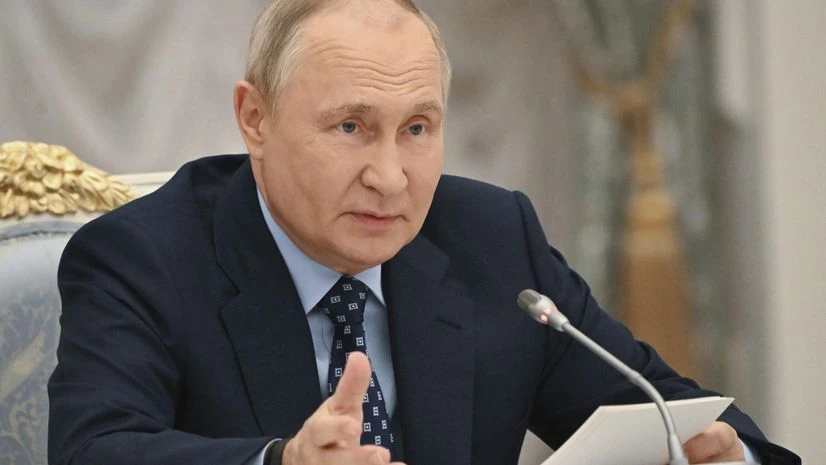Russia's election commission on Monday formally registered President Vladimir Putin as a candidate for the March presidential election, a vote in which he's all but certain to win another six-year term in office.
Putin, 71, is running as an independent, but he retains tight control over Russia's political system that he has established during 24 years in power. With prominent critics who could challenge him either jailed or living abroad and most independent media banned, his re-election in the March 15-17 presidential vote looks all but assured.
In 2018, Putin also ran as an independent, snubbing the United Russia party that nominated him to run in 2012. With his approval ratings hovering around 80 per cent, Putin is far more popular than United Russia, which is widely seen as a part of the Kremlin-controlled state bureaucracy rather than a political force.
The Central Election Commission formally cleared Putin for the race after reviewing 315,000 signatures gathered by his campaign from all 89 regions of Russia. Russian election law requires independent candidates to present at least 300,000 signatures to get on the ballot.
The commission already has approved three other candidates who were nominated by parties represented in parliament and weren't required to collect signatures: Nikolai Kharitonov of the Communist Party, Leonid Slutsky of the nationalist Liberal Democratic Party and Vladislav Davankov of the New People Party.
Also Read
All three parties have been largely supportive of the Kremlin's policies. Kharitonov ran against Putin in 2004, finishing a distant second.
Boris Nadezhdin, a 60-year-old liberal politician who serves as a local legislator in a town near Moscow, is also seeking to run. He has openly called for a halt to the conflict in Ukraine and starting a dialogue with the West.
Thousands of Russians have lined up across the country to leave their signatures in support of Nadezhdin's candidacy to allow him to qualify for the race, an unusual show of opposition sympathies in the rigidly controlled political landscape that raised a challenge for the Kremlin.
The Central Election Commission is expected to review Nadezhdin's papers later this week to decide whether to register him for the race.
Under a constitutional reform that he engineered, Putin is eligible to seek two more six-year terms, potentially allowing him to remain in power until 2036.
(Only the headline and picture of this report may have been reworked by the Business Standard staff; the rest of the content is auto-generated from a syndicated feed.)

)
